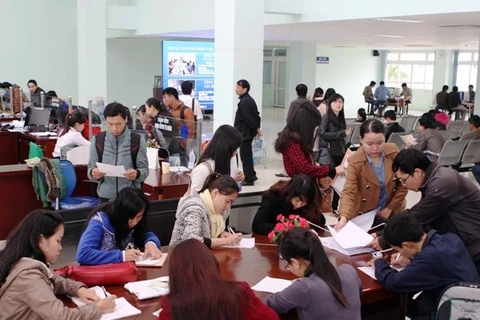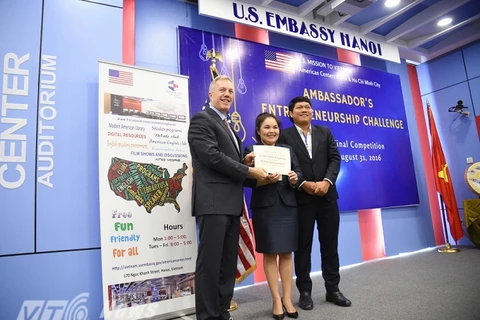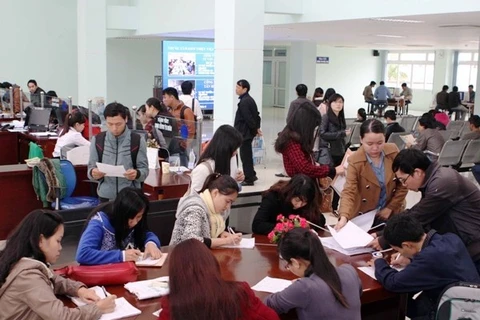Hanoi (VNA) - Deputy Prime Minister Vuong Dinh Hue affirmed that a start-up ecosystem seminar is an opportunity for the Vietnamese Government and Hanoi to learn from Israel, a successful start-up nation.
Deputy Prime Minister Hue made the statement at a seminar on Vietnam's start-up ecosystem and lessons from Israel held by the Hanoi People's Committee, Israel's Embassy and the FPT corporation on September 21.
The Deputy PM said Vietnam could learn from Israeli experts about building an entrepreneurship ecosystem at the macro and micro levels by focusing on specific policies in several key sectors.
Hue said it was expected to propose action plans for the building of a start-up ecosystem in Vietnam and affirmed the Government's commitment to supporting the start-up ecosystem to create a start-up nation and strengthen relations between Vietnam and Israel.
Hue hoped that Hanoi will become a pilot location to outline suitable policies so as to make it a start-up centre of Vietnam.
The investment climate has improved compared in the last seven years. More foreign investment funds are pouring capital into Vietnam and more start-up businesses are being established. Hue noted that this year, Vietnam has seen 10,000 new businesses established each month.
He warned that authorities and the start-up community need to be associated with innovation and have a close relationship with high-tech development. He said the process of starting a business was relentless. Corporations and big cities needed to support start-up businesses.
Vo Tran Dinh Hieu of the Dragon Capital Group told participants that the Government and the Ministry of Planning and Investment needed to issue a circular on foreign venture capital funds for start-up businesses.
At the seminar, Israeli speakers shared their experiences in starting a business in Israel.
Esther Barak Landes - Founder and CEO Nielsen Innovate Fund, who has years of experience in finding and investing in start-up businesses, outlined an overall picture of the current status of Israeli start-up businesses.
Landes said Israel had innovative strategies to develop start-up companies. Israel conducted policies to encourage start-up businesses, especially start-up companies in the technology sector. It has also provided programmes and funding from the government, tax incentives for business, trade agreements, and technology incubators.
Avi Luvton, Executive Director of International Cooperation Programs for the Asia Pacific Department at the Israel Innovation Authority said Israel was not similar to Vietnam in that it does not have natural resources, including water shortages. Therefore, Israel had to develop start-ups.
Avid said Israel became the world's number one start-up nation and continued to innovate as were no other solutions for Israel. This became motivation and fuel to enable Israel to create a start-up ecosystem.
Also at the seminar, the Vietnam Innovative Startup Accelerator launched its website for select start-up businesses in technology in Southeast Asia. Start-up companies can register for the website at www.viisa.vn.
Start-up nation by 2020
Vietnamese policymakers are embracing an ambitious plan to turn the country into a start-up nation in the next four years.
Recently, the Vietnamese government approved a package of initiatives aimed at paving the way for a boom in technology start-ups
Under the project, the government will provide legal and financial support for an estimated 2,600 start-ups across the country over the next 10 years.
The government plans to launch an online portal that will keep start-ups updated about technologies, policies and funding.
The government will also set up co-working spaces where startup companies can gain access to operational infrastructure at low costs.
Start-ups will even receive financial support from the government for training, product testing and marketing.
The Ministry of Planning and Investment has developed a set of incentives that will draw local and foreign venture capital funds into the country.-VNA

























